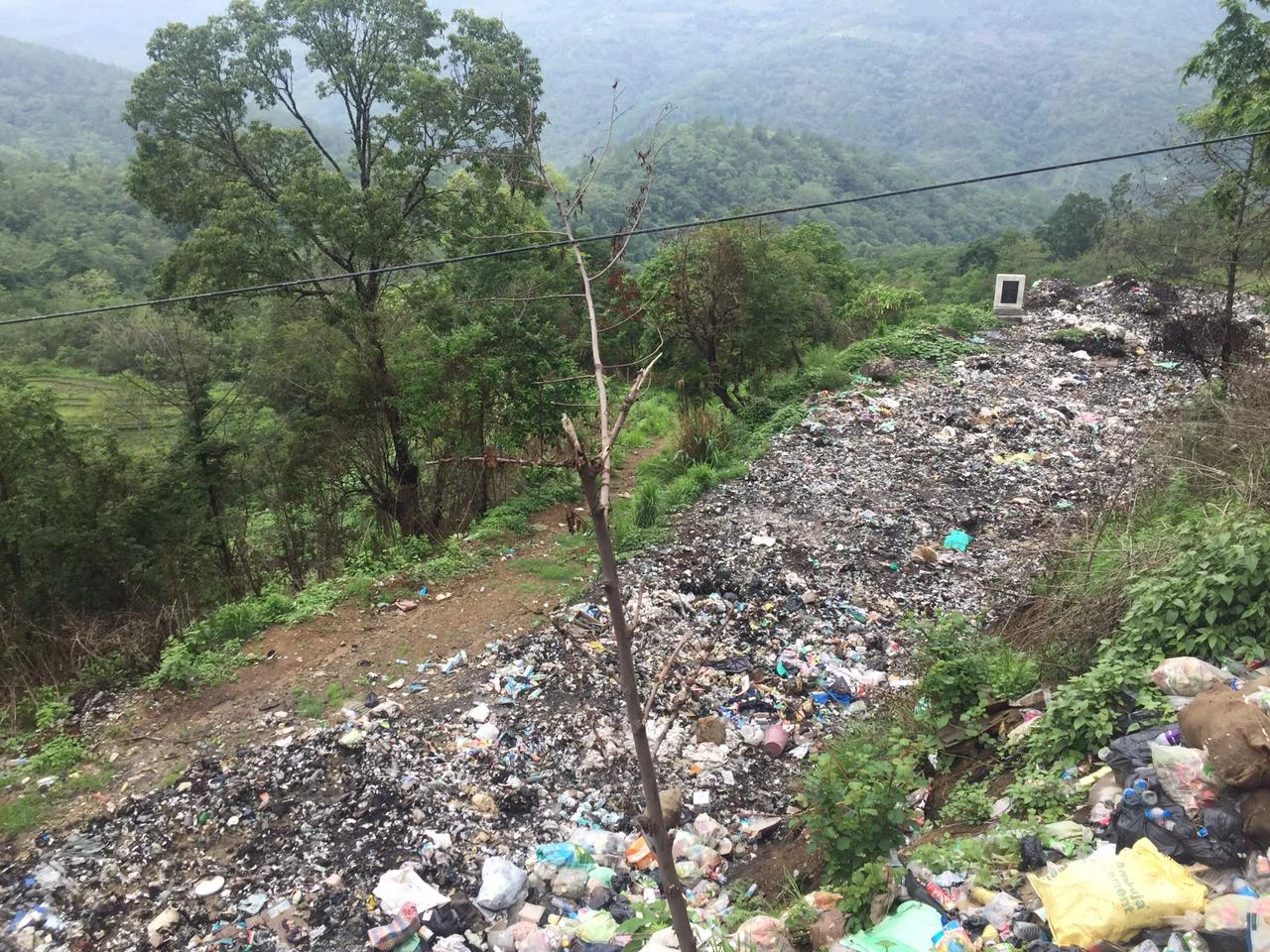From Waste to Wellness: Manipur Garbage Dump Transformed into Peaceful Park for Seniors, Eyes Cleaner Future
Imphal’s iconic Khwairamband Ima Keithel—popularly known as the Ima Market—is renowned worldwide for being entirely run by women vendors. Tourists from across India and abroad flock to this unique marketplace to witness its vibrant energy and cultural richness. However, beneath its charm lies a long-standing issue: poor waste management and lack of cleanliness.
For years, areas surrounding the market have served as informal dumping grounds for vegetable waste and other refuse. The stench has made it difficult for pedestrians, while stray animals—including cows, dogs, and even the endangered Manipuri Pony—feed on the decaying waste, endangering their health.
“Yes, waste is expected in a market. But it must be disposed of responsibly,” said Ngangom Uttam, Director of Municipal Administration, Housing & Urban Development (MAHUD), in an interview with Northeast Live. He emphasized that maintaining cleanliness is a shared responsibility between the government and the public.

In a step towards addressing the issue, a former dumping ground near Lai Eshingchaiba, opposite Nagamapal, has been transformed into a serene “Senior Citizens’ Recreation Point.” Developed by the Imphal Municipal Council (IMC) under the 15th Central Finance Commission (Tied Fund), this initiative is part of the broader Clean Imphal Campaign aimed at reclaiming and beautifying public spaces.
The new park was officially inaugurated on Friday and has already begun drawing attention for all the right reasons. A prominent signboard at the entrance reads: “My City, My Responsibility,” a reminder that sustainable change begins with individual action.
Building on this momentum, authorities are now planning targeted solutions for waste management at Ima Market itself. Under the upcoming initiative, municipal staff will distribute dustbin bags to women street vendors each morning. Vendors will pay a refundable deposit of ₹50 per bag, which will be returned—minus a small ₹10 maintenance fee—when the bag is returned filled with properly segregated waste.
“This small step can bring a big change,” Director Uttam noted. “Right now, many vendors arrive early and discard vegetable waste near their stalls, turning the market into a waste zone. We want to change that behavior.”
Efforts are also underway to identify and clean other garbage-prone areas across the state. However, officials acknowledge that one of the biggest challenges is changing public habits—particularly the tendency to dump waste into drains, rivers, and streets.
“Blaming the government or blaming the public won’t solve anything,” Uttam said. “Everyone has a role to play. The city can only stay clean if we all take ownership.”
As the Clean Imphal Campaign gathers momentum and garners public support, there is growing hope that other areas will soon follow Nagamapal’s inspiring example—where a once-neglected dump has blossomed into a peaceful space for the elderly to relax and reconnect with nature.
Also Read : A Glorious Past on Rails: The Story of Darjeeling’s 782B Steam Engine
































